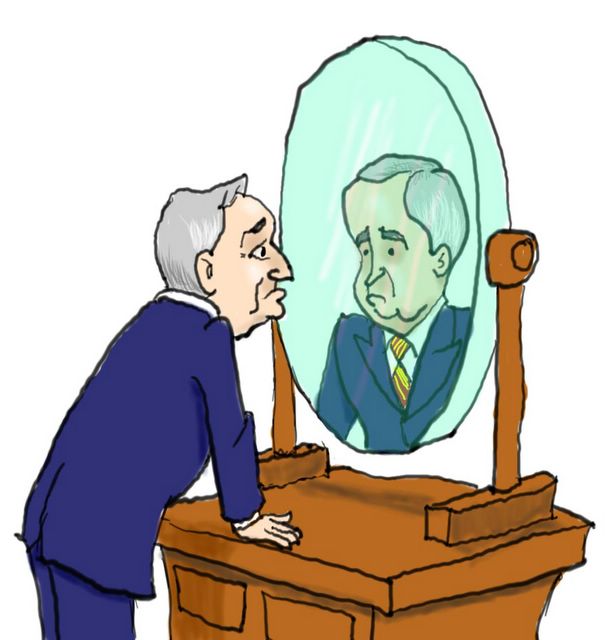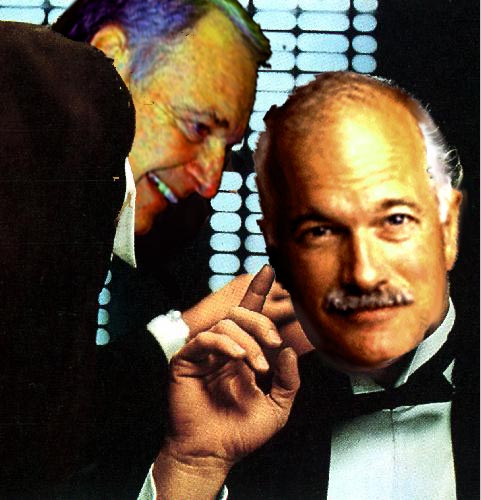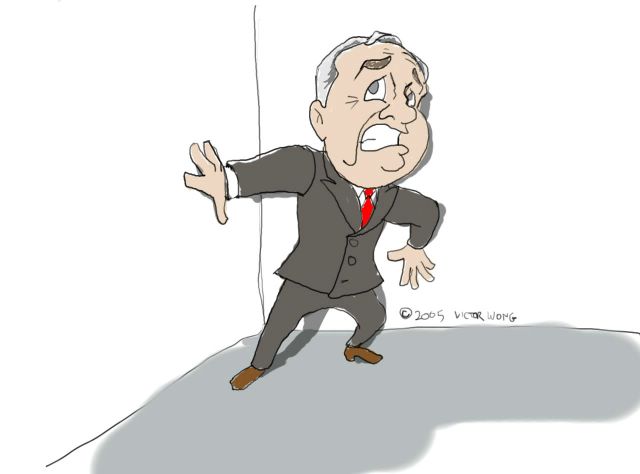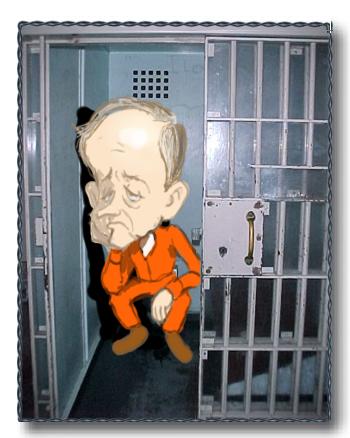Taking Time Out
I'm headed out to BC this week to visit family. So blogging is going to be a bit on the light side.
Hey, if Parliament can take a week off, so can I.
Keeping an eye on the Canadian scene.
I'm headed out to BC this week to visit family. So blogging is going to be a bit on the light side.

One of my favorite movies is 1993's Tombstone. You know, the Wyatt Earp saga. I have the Vista Series DVD with commentary by director George Cosmatos. His accent was a little hard to understand, but you could hear how dedicated he was to telling the story right.

Yesterday, the House of Commons continued debate on Bill C-38, the Civil Marriage Act. Once again I'm going to summarize the positions of MPs who spoke on this bill, including links to their parliamentary websites in case you want to contact them.

Mr. Abbott is the Conservative MP for Kootenay-Columbia. Yesterday, he used his private member's time to create a new dance:
All right, Prime Minister, you're all set. At 19h45 hours, you will address the nation. You've managed to get the networks to cooperate, and you'll be all alone -- just you in the studio, no press to ask you annoying questions, no Opposition politicians around to hound you. Just you, a camera and mike, and the rest of Canada's eyes on you.
Yesterday, the House of Commons resumed debate on Bill C-38, the Civil Marriage Act. Once again I'm going to summarize the positions of MPs who spoke on this bill, including links to their parliamentary websites in case you want to contact them.
Angry_in_TO, proprietor of Angry in the Great White North, has asked his fellow Blogging Tories to do a Kinsella Audit. Well, I may not be a Blogging Tory (I don't know if I qualify), but an audit seems like the right thing to do, so here goes:
Looks like we got us a new Supreme Pontiff.
Mr. Solberg is the Conservative MP for Medicine Hat. Yesterday he attempted to commit a rhetorical assault by beating a metaphor to death:
The poet in question is Brian Pallister, the Conservative Member of Parliament for Portage-Lisgar:

Tom Lukiwski is the Conservative MP for Regina—Lumsden—Lake Centre. He was debating a BQ motion to establish a trust fund for the Liberal Party of Canada to deposit monies improperly received from Adscam:
This afternoon, Prime Minister Dithers denied having lunch with Claude Boulay, who (according to Gomery witness Alain Renaud) had supposedly met with the PM over lunch in 1990.
Interesting statement from Anita Neville, the Liberal MP from Winnipeg South Centre:
From CBC News:
... may be found here. Sue is one of our newest members, and she's done a pretty swell job.
The noise in the House of the Brault testimony tended to obscure other parliamentary business. Earlier in the day, the Standing Committee on Aboriginal Affairs tabled its report on the Alternative Dispute Resolution (ADR) Process.
Check out this profile of our London-based member of the Red Ensign Brigade.
My radio is currently tuned in to CBC Radio 1. In case you're not near a radio, Justice John H. Gomery has just lifted the publication ban on Jean Brault's testimony in his inquiry on the sponsorship scandal. It's not a complete lifting; Mr. Brault's testimony concerning former bureaucrat Chuck Guité is still under wraps, because that has a direct bearing on Brault's and Guité's trial for conspiracy.
And this time, there's no need to tiptoe around a publication ban. Check out this story from Greg Weston of Sun Media, available from C-News (Angry in the Great White North has the Toronto Sun version):
We continue the summaries of MPs' statements on Bill C-38, the Civil Marriage Act. This round is taken from the Hansard of Tuesday, 5 April. Links to MPs' parliamentary web pages are included in case you want to contact them directly.
Yesterday, the House of Commons resumed debate on Bill C-38, the Civil Marriage Act. Once again I'm going to summarize the positions of MPs who spoke on this bill, including links to their parliamentary websites in case you want to contact them.
Edward Morrissey, also known as "Captain Ed," operates Captain's Quarters, one of the Northern Alliance blogs who helped bring down Dan Rather and John Kerry. (Alliance members include Powerline, TIME Magazine's Blog of the Year.)
I remember where I was when Karol Cardinal Wojtyla ascended to the papacy. I was in junior high school, barely paying attention in English class when they announced that Pope John Paul the First had died.
